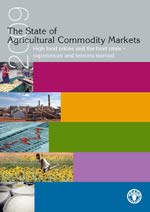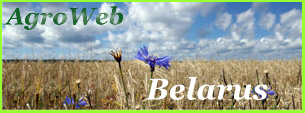|
The United Nations Food and Agriculture Organization (FAO) report "The State of Agricultural Commodity Markets 2009"
High food prices and the food crisis вАУ experiences and lessons learned
"The State of Agricultural Commodity Markets 2009" was written by a team of staff from the Trade and Markets Division of FAO, led by David Hallam.

|
"The State of Agricultural Commodity Markets 2009" begins by reviewing the nature of price increases on world markets and how these become higher food prices for individual consumers and agricultural producers. Agricultural commodity prices have always been highly variable, but around a long-run downward trend. However, some commentators and analysts have suggested that there are now new factors at work, especially the expansion of biofuel production, that mean that food prices will not return to their historical trend. As yet, the available evidence is not conclusive, although some market fundamentals could indeed suggest the end of so-called вАЬcheap foodвАЭ. What those features are and how they have influenced food prices are looked at in
some detail.
Particular attention is focused on the extent to which the different explanations вАУbiofuel demand, record oil prices and increasing food demand arising from rapid economic growth in China and India вАУ can account for the sudden food price inflation witnessed around the world and on what the role was of the traditional market drivers such as low stock levels or weather-related supply shortfalls.
|
The questions of whether the situation was exacerbated by inflows of speculative funds or policy measures introduced by governments are also discussed. In practice, while biofuel demand and high oil prices arguably had the major impact, all of these factors played some role and interacted to produce the jump in food prices. Several of these factors are likely to have a persistent effect, so a return of food prices to their previous levels is unlikely in the short term.
"The State of Agricultural Commodity Markets 2009" aims to bring to a wider public an accessible discussion of agricultural commodity market issues and related policy matters. Although the findings and conclusions presented rely on recent technical analyses by FAO specialists in commodity and trade issues, this is not an overly technical report. Rather, it seeks to provide an objective and straightforward treatment of what are at times complicated economic issues for policy-makers, commodity market observers and all those interested in agricultural commodity market developments and their impact on developing countries.
|




